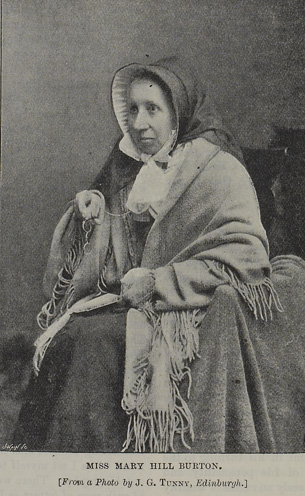Mary Burton 1819-1909

Reproduced by kind permission of The Trustees of the National Library of Scotland.
Educational and social reformer
Mary Burton was once described as “a unique example of the Victorian woman on the warpath”. She played a crucial role in the development of the Watt Institute (the forerunner of Heriot Watt University) both subscribing to the struggling finances and accepting election to the Board of Directors. Thanks to her efforts, in 1866 the Watt Institute opened classes to women, 20 years ahead of other universities although women could not graduate until the passing of the Universities Scotland Act of 1889. She was no token woman! She took an active part in the Watt’s Literary Society and was Honorary President from 1883 to 1901 engaging in debates well into her seventies.
She did not confine her interests to higher education but sat on the Edinburgh Parish Council, and the School Board where she fought for co-education, evening classes for both sexes and teaching boys to sew and knit!
Mary Burton was also a suffragist and in 1868 dared to challenge the exclusion of women from the electorate by pleading the case in court. She did not live to see the vote but willed £100 to the Edinburgh Women's Suffrage Society to campaign "for the admission of women to sit as Members of Parliament, either at Westminster or in a Scottish Parliament".
She was born and died in Aberdeen but spent most of her life in Edinburgh. Unmarried, she provided for a large extended family including the young Arthur Conan Doyle and her niece Ella (who was among the first to sit alongside the men in class in the Watt Institute!). (Detailed description)